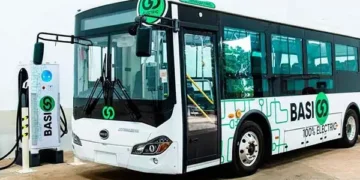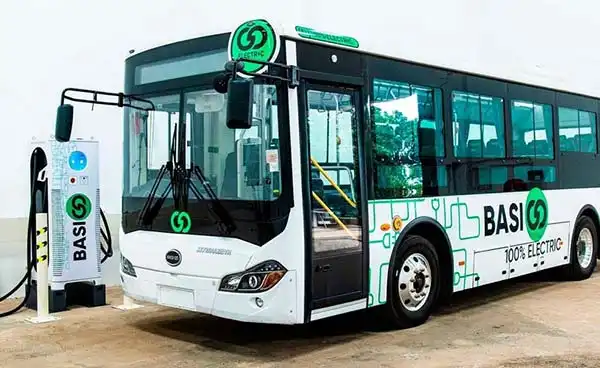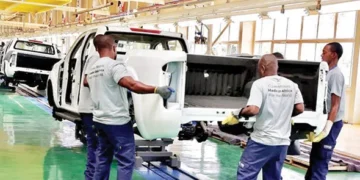Blitz Bureau
Long lines have been forming at gas stations in Ethiopia’s capital Addis Ababa amid fuel shortages and a price spike in recent months, but electric vehicle driver MikialBelayneh avoids them completely.
“I no longer line up for petrol on the road,” Belayneh, an Addis resident, told CNN. A full charge of his imported Toyota bZ4X – a popular EV in the country – “is more than enough for two days.”
Belayneh, who charges his car at home, is part of rapid transition to EVs in Addis Ababa, according to a report by CNN. The capital city is at the centre of Ethiopia’s goal to hoist millions of people out of poverty.
Cleaner and quieter
In addition to the polluting cars and trucks rumbling along the roads, cleaner – and quieter – vehicles are joining the traffic. Electric buses, smaller 15- seat minibuses, cars and motorbikes are popping up on the streets of the capital.There are around 100,000 EVs in Ethiopia so far.
The Ethiopian Government estimates that number will more than quadruple by 2032. That’s largely because it took the extraordinary step earlier this year of banning the import of all gas-powered passenger vehicles – becoming the first nation in the world to do so.
It also effectively slashed the customs tax on imported cars: the tax on gas vehicles was up to 200 per cent before they were banned, while the import tax for fully assembled EVs is just 15 pc, according to the country’s Finance Ministry.It’s part of a Government-led effort to get more EVs on the streets.
Local assembly
The lower rates are also spurring more local EV manufacturing. Hundreds of the vehicles were assembled by Ethiopia-based BelaynehKindie Group using parts imported from China.
BesufekadShewaye, Manager at the company, told CNN that import tariffs are “almost zero percent” for EV parts that are assembled in Ethiopia.“Nowadays most vehicle owners prefer EVs, especially light vehicles,” Shewaye said, and added, “The demand is increasing from day to day.” Ethiopia is leaning hard into EVs in part because importing fuel is expensive, and 96 per cent of the country’s electricity comes from clean hydropower – a dual win for the country’s finances and the environment.
“They really are a clean-energy country,” said Jane Akumu, a Kenyabased programme officer at the United Nations Environment Programme. The Government recognised it had a bountiful renewable energy source in the country when it started shifting towards EVs, said AssefaHadisHagos, a transportation adviser for the Ethiopian Ministry of Transport and Logistics.

































